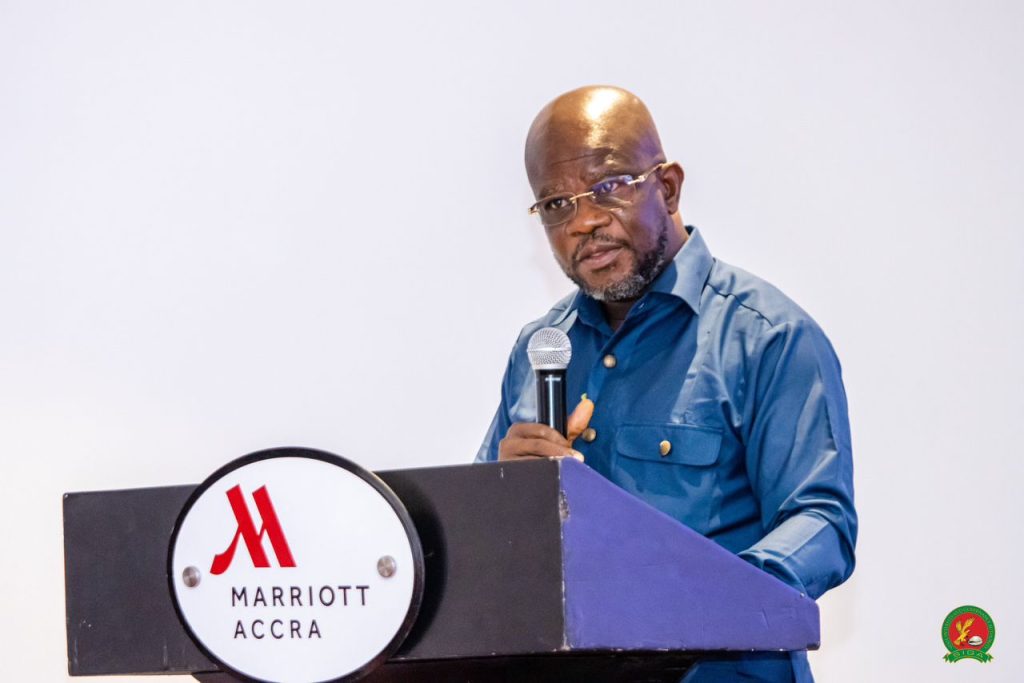Prof. Michael Kpessa-Whyte, the Acting Director-General of the State Interests and Governance Authority (SIGA), joined a distinguished panel of leaders at the Leadership Dialogue Breakfast Meeting held on Tuesday, 23rd July 2025, at the Accra Marriott Hotel. The event, organised by Berkha Africa in collaboration with the Institute of Directors–Ghana (IoD-Gh), brought together high-level participants from key sectors, including mining, hospitality, finance, manufacturing, and logistics, under the theme: “Innovating for Growth: Adapting Business Models to Ghana’s 24-Hour Economy.”
Delivering his address on “The Role of SIGA in Enhancing Governance and Investment in Ghana’s 24-Hour Economy,” Prof. Kpessa-Whyte reaffirmed SIGA’s commitment to transforming Specified Entities (SEs) through robust governance frameworks, investment discipline, and strategic oversight.
“SIGA’s mandate is not just to supervise SEs but to build governance systems that inspire transparency, investment readiness, and accountability. We are deploying integrated risk and compliance dashboards, enforcing ESG standards, and partnering with industry leaders to ensure that Ghana’s 24-hour productivity vision becomes a sustainable economic reality,” he stated.
Prof. Kpessa-Whyte further noted that SOEs hold a crucial position in Ghana’s economic architecture and must be equipped to operate competitively in a 24-hour global business environment. He called for cross-sector collaboration to align tax incentives, energy policy, labour standards, and digital infrastructure in support of the initiative.
The event also featured key contributions from Abdul-Nasser Alidu, Head of Strategy and Programmes at the 24H+ Secretariat, representing the Presidential Advisor on the 24H+, Mr. Augustus Obuadum Tanoh, Hon. Austin Gamey, Labour Consultant and CEO of Gamey and Gamey Group, Dr. Bernice Welbeck, Executive Secretary of the National Labour Commission, Dr. Alfred Braimah, CEO of IoD-Gh, and Scofray Nana Yaw Yeboah, President of ICF Ghana.
The session featured presentations, speeches, and a lively Q&A session, where the panel addressed participants’ concerns on workforce readiness, regulatory alignment, and investment sustainability. Feedback from the audience confirmed that the session provided clarity and renewed purpose for adapting business models to round-the-clock operations.
The event concluded with a strong consensus on the value of such strategic engagements, with organisers announcing plans to institutionalise the Leadership Dialogue as a regular platform to foster deeper collaboration, support policy innovation, and promote continuous learning across the public and private sectors.

